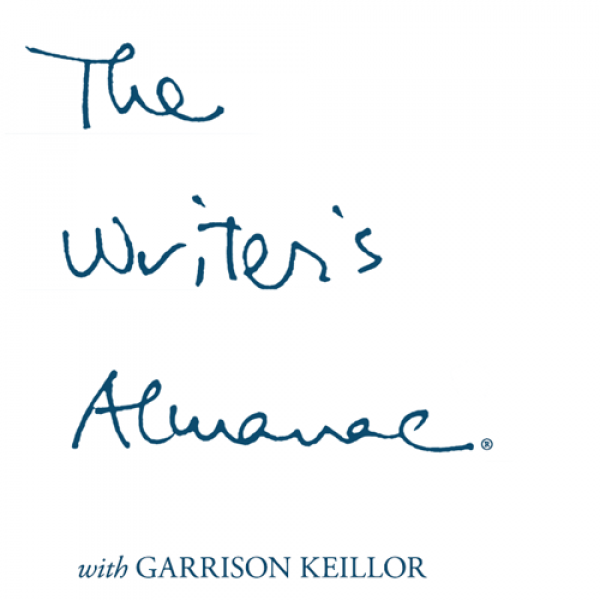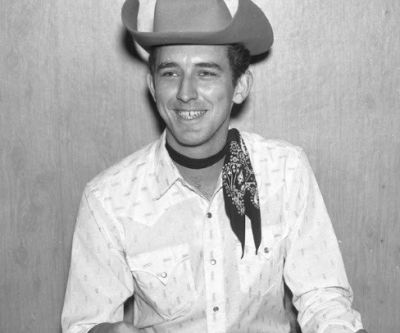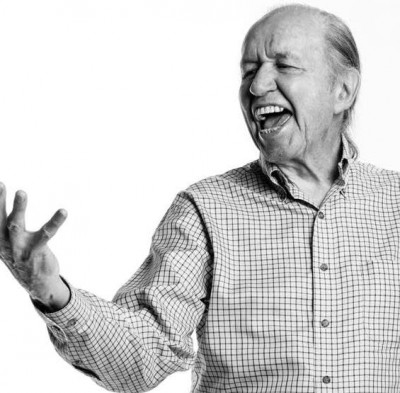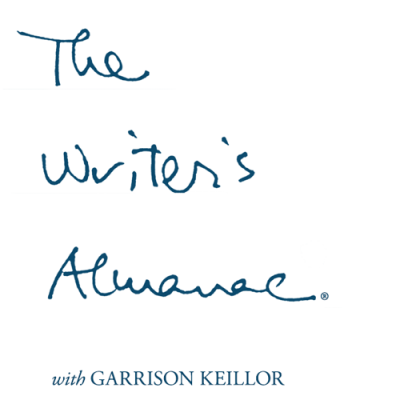December 20, 2018
Tuesday
8:00 p.m.
Minneapolis, MN
Test schedule
A live performance with Robin and Linda Williams at the Cedar Cultural Center
May 20, 2018
Sunday
3:00 p.m.
Lexington, MA
Lexington, MA
A live performance at the Saenger Theatre
April 10, 2018
Tuesday
8:00 p.m.
Tulsa, OK
Tulsa, OK
A live performance at the Brady Theater
March 17, 2018
Saturday
8:00 p.m.
Long Beach, CA
Long Beach, CA
A live performance at the Carpenter Performing Arts Center
March 15, 2018
Thursday
7:00 p.m.
Mobile, AL
Mobile, AL
A live performance at the Saenger Theatre
“This World Is Not Conclusion” by Emily Dickinson. Public domain. (buy now)
this world is not conclusion
a species stands beyond –
invisible, as music –
but positive as sound –
it beckons, and it baffles
philosophy – don’t know –
and through a riddle, at the last –
sagacity must go –
to guess it, puzzles scholars –
to gain it, men have borne
contempt of generations
and crucifixion, shown –
faith slips – and laughs, and rallies –
blushes, if any see –
plucks at a twig of evidence –
and asks a vane, the way –
much gesture, from the pulpit –
strong hallelujahs roll –
narcotics cannot still the tooth
that nibbles at the soul –
It was on this day in 1613 that the Globe Theatre burned to the ground. For more than 10 years, it had been the most popular theater in London, and it was where many of Shakespeare’s (books by this author) greatest plays had their premiere, including Hamlet, King Lear, and Macbeth.
It was a theater in the round, with the audience in a circle around a platform for the actors. It was probably designed this way because most of the actors in Shakespeare’s company got their start acting in the street, surrounded by a crowd.
In 1996, a replica of the Globe was built and plays at the new Globe Theatre are performed exactly the same way they would have been performed by Shakespeare’s company. The performances take place in the afternoon daylight, there are no microphones and few props, and the roof is open to the weather.
A lot of people didn’t think the new Globe would appeal to a modern audience. But it’s been a big success. About 700,000 people visit it every year. The actors say that the audience always pays better attention to the play when it’s raining.
It was on this day in 1888 that a snippet of George Frideric Handel’s oratorio “Israel in Egypt” was recorded on a wax cylinder. It is one of the earliest surviving recordings of music.
In December of 1877, Thomas Edison filed for a patent for his phonograph, a device to record and play back sound. It all started with a little toy he made — when you spoke into a funnel, the vibrations it made on a diaphragm engaged a ratchet wheel and made a little figure of a man saw wood. He wrote later: “I reached the conclusion that if I could record the movements of the diaphragm properly, I could cause such record to reproduce the original movements imparted to the diaphragm by the voice, and thus succeed in recording and reproducing the human voice.” And he did just that.
In 1888, the Handel Festival was held at the Crystal Palace in London, a royal tradition that was celebrated regularly since 1784. The performance of his oratorio “Israel in Egypt” took place on Friday at 2 p.m., with doors opening at 11 and a cost between 7 and 25 shillings. Almost 24,000 people attended the show.
Thomas Edison had an agent named Colonel George Gouraud who sold phonographs to the European market and lived in South London. For the “Israel in Egypt” concert, Gouraud got permission to put the phonograph in the theater’s press gallery. There was an orchestra of about 500, and a choir of at least 3,000 people. The recording is scratchy and the music is indistinct not only because the technology was so new, but also because there were so many voices and the phonograph was too far away. But it is still recognizable as choral music, and it is the earliest live concert that survives.
A year later, the Columbia Phonograph Company started up and sold gramophones for peoples’ homes. In 1890, they produced the first record catalog, which was a one-page list of wax cylinders; two years later Emile Berliner offered discs in place of cylinders. Over the next few years, the recording industry took off, and many homes had some sort of phonograph in them.
Thomas Edison sent George Gouraud to record the voices of famous people, including P.T. Barnum, Florence Nightingale, and Queen Victoria. On August 2nd of 1890, Gouraud went to record Alfred, Lord Tennyson, as the poet recited: “Half a league, half a league, / Half a league onward, / All in the valley of Death / Rode the six hundred,” from his famous “The Charge of the Light Brigade.” Another early recording was of Robert Browning, shortly before his death, reciting part of his poem “How They Brought the Good News from Ghent to Aix.” He tried twice, but he couldn’t remember more than a few lines. But he did say on the recording that it was a “wonderful invention.”
In 1992, scholars announced that they had found an 1890 recording that purports to be Walt Whitman reading four lines from his poem “America,” written in 1888, and included in one of Whitman’s revised versions of Leaves of Grass.
People who have studied the recording are still not sure that it’s authentic. The voice fits the description given by Whitman’s close friend and caregiver, Horace Traubel: “strong and resonant, full of music, a rich tenor,” and the poem is delivered in a convincing New York accent. But most historians believe the recording is too clear, that there was too much bass and the signal was wrong for such an old recording. Unless the wax cylinder turns up, we might not find out who is reciting the lines in the 36-second recording.
It was on this day in 1956 that President Eisenhower signed the Federal Highway Act, which established the Interstate Highway System.
The Interstate Highway System had been in the works for a while. During World War I, the Army determined that the condition of national roads needed to be improved for national defense, so they produced a map for the government of the major routes they felt were important in the event of war. In 1938, President Roosevelt drew out a map of “superhighways” to cross the country.
The American public had its first taste of the a “superhighway” system in 1939, at the New York World’s Fair. The most popular exhibit there was the General Motors Futurama ride, which showed a vision of the future in 1960. Fairgoers sat in chairs that moved through a diorama of the future America, where everyone owned a car and the entire country was connected by freeways. On these freeways, the lanes going in one direction were separated from the traffic coming from the other direction. Drivers could go up to 50 mph, and could travel from one coast to the other without a single traffic light. These ideas were so exciting that 28,000 people attended the Futurama exhibit every day.
As a general during World War II, Eisenhower was impressed by Germany’s autobahn system, and he decided that the United States needed something comparable. After the war, the economy was booming, and Eisenhower decided the time was right to push through the Interstate Highway System. It was the largest public works project in American history. It took longer than expected to build—35 years instead of 12—and it cost more than $100 billion, about three times the initial budget. But the first coast-to-coast highway, Interstate 80, was completed in 1986, running from New York City to San Francisco.
It was a great boon for hotel and fast-food chains, which sprung up by interstate exits. It was also a boon for suburban living, since commuting was faster and easier than before.
But it was not necessarily good for American literature. When John Steinbeck took a cross-country trip with his dog and wrote Travels with Charley (1962), he only traveled on the interstate for one section, on I-90 between Erie, Pennsylvania, and Chicago, Illinois. He wrote: “These great roads are wonderful for moving goods but not for inspection of a countryside. You are bound to the wheel and your eyes to the car ahead and to the rear-view mirror for the car behind and […] at the same time you must read all the signs for fear you may miss some instructions or orders. No roadside stands selling squash juice, no antique stores, no farm products or factory outlets. When we get these thruways across the whole country, as we will and must, it will be possible to drive from New York to California without seeing a single thing.”
Jack Kerouac wrote On the Road in 1951, and by the time it was published, in 1957, construction had begun on the Interstate Highway System. In 1969, shortly before his death, Kerouac said: “You can’t do what I did any more. I tried in 1960, and I couldn’t get a ride. Cars going by, kids eating ice cream, people with hats with long visors driving, and, in the backseat, suits and dresses hanging. No room for a bum with a rucksack.”
William Least Heat-Moon wrote Blue Highways (1982) about the cross-country trip he took after losing his job and separating from his wife. He took only back roads. He wrote: “Life doesn’t happen along interstates. It’s against the law.”






